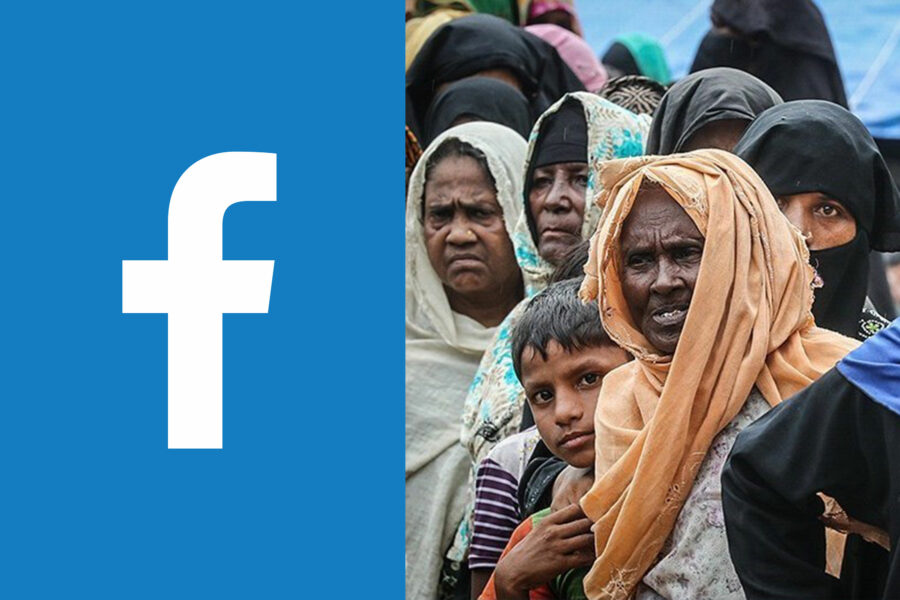Accusing the social media giant Facebook, now known as Meta, of allowing the spread of hate speech against their community, several Rohingya refugees in the United Kingdom and the United States have sued the company, according to a BBC report.
As compensation, they are demanding more than $150 billion.
The lawsuit claims Facebook promoted violence against the persecuted minority by allowing “the dissemination of hateful and dangerous misinformation to continue for years” on the social media platform.
One of the most persecuted minorities in the world, Rohingya Muslims have been denied citizenship under the 1982 Myanmar nationality law and are considered illegal migrants in the country, resulting in discrimination by the government as well as the public in the Buddhist-majority country.
As per the BBC report, an estimated 10,000 Rohingya Muslims were killed during a violent crackdown launched by the Myanmar military in 2017, after Rohingya militants allegedly carried out deadly attacks on police posts. Following this, more than 700,000 Rohingya fled to neighbouring Bangladesh.
Facebook, which is hugely popular in Myanmar, was widely used to spread anti-Muslim hatred and disinformation about the Rohingya ahead of the violence and since. In 2018, Facebook admitted to not doing enough to prevent the incitement of violence and hate speech against the Rohingya.
In a letter to Facebook that BBC accessed, the British law firm representing some of the refugees has now pointed out the social media giant’s failure to invest in moderators and fact-checkers who knew the political situation in Myanmar, to take down posts or delete accounts that incited violence against Rohingya, and to “take appropriate and timely action” despite warnings from charities and the media.
Lawyers in the US, meanwhile, filed a legal complaint against Facebook in San Francisco accusing it of being “willing to trade the lives of the Rohingya people for better market penetration in a small country in Southeast Asia.”
The complaint further states that the introduction of Facebook in Myanmar “materially contributed to the development and widespread dissemination of anti-Rohingya hate speech, misinformation, and incitement of violence – which together amounted to a substantial cause, and perpetuation of, the eventual Rohingya genocide.”
Recommended
Earlier this year, Facebook was embroiled in controversy after ex-employee Frances Haugen leaked documents to the media that show the company put monetary gains ahead of user safety. Facebook also took heat for its failure to curb hate speech and misinformation across the world. Leaked documents revealed that in India, Facebook failed to flag-off hate speech, misinformation and inflammatory posts – particularly anti-Muslim content – despite being made aware of them through internal research since at least 2019.
Meanwhile, following its recent rebranding as Meta, the company released data on bullying and harassment on both Facebook and Instagram. It noted that the “prevalence of hate speech on Facebook continued to decrease for the fourth quarter in a row.”



